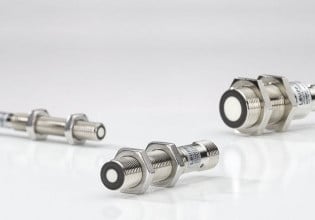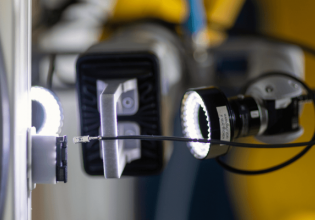M
We have a continuous reactor, which operates under vacuum. The reactor's temperature is controlled by controlling the amount of vapor which is produced during the continuous exothermic reaction. Therefore the temperature control is a master-slave control in which the temperature controller outputs a pressure setpoint to the (vapor) pressure controller which controls the control valve that regulates the amount of vapor leaving the reactor. For example, if the temperature in the reactor is above the set point, the temperature controller will output a less pressure setpoint to the pressure controller which will drive the control valve to open more to allow more vapor to leave thereby reducing the pressure.
I have observed that the control valve is always exhibiting a cyclic behavior. The period between the two peaks is around 30 minutes. I have tried to tune the master-slave controllers and I thought that I have succeeded, only to discover the next day that the control valve has returned to its cyclic behavior.
I have a hypothesis and I want your opinion on it: the pressure instrument inside the reactor has a range of 5 bar absolute. Remember that the reactor's operation is under vacuum, therefore the pressure is always under 1 bar unless the reactor has an open part, which never happens during normal operation. Even though the control valve has more than 50% difference peak to peak, the reactor's pressure is always within 0.6 - 0.7 barA. Therefore, I believe that the cyclic behavior is due to having a low resolution in the pressure measurement, and the situation can be corrected by having a pressure instrument that has a range of, say, 1.5 bar.
Note: the temperature controller is pretty "aggressive" since we always want to have a very tight control of the temperature (variations are normally 0.1 - 0.2 degC)
Can anyone confirm my hypothesis? Also, other comments or reasonings are welcomed.
I have observed that the control valve is always exhibiting a cyclic behavior. The period between the two peaks is around 30 minutes. I have tried to tune the master-slave controllers and I thought that I have succeeded, only to discover the next day that the control valve has returned to its cyclic behavior.
I have a hypothesis and I want your opinion on it: the pressure instrument inside the reactor has a range of 5 bar absolute. Remember that the reactor's operation is under vacuum, therefore the pressure is always under 1 bar unless the reactor has an open part, which never happens during normal operation. Even though the control valve has more than 50% difference peak to peak, the reactor's pressure is always within 0.6 - 0.7 barA. Therefore, I believe that the cyclic behavior is due to having a low resolution in the pressure measurement, and the situation can be corrected by having a pressure instrument that has a range of, say, 1.5 bar.
Note: the temperature controller is pretty "aggressive" since we always want to have a very tight control of the temperature (variations are normally 0.1 - 0.2 degC)
Can anyone confirm my hypothesis? Also, other comments or reasonings are welcomed.






